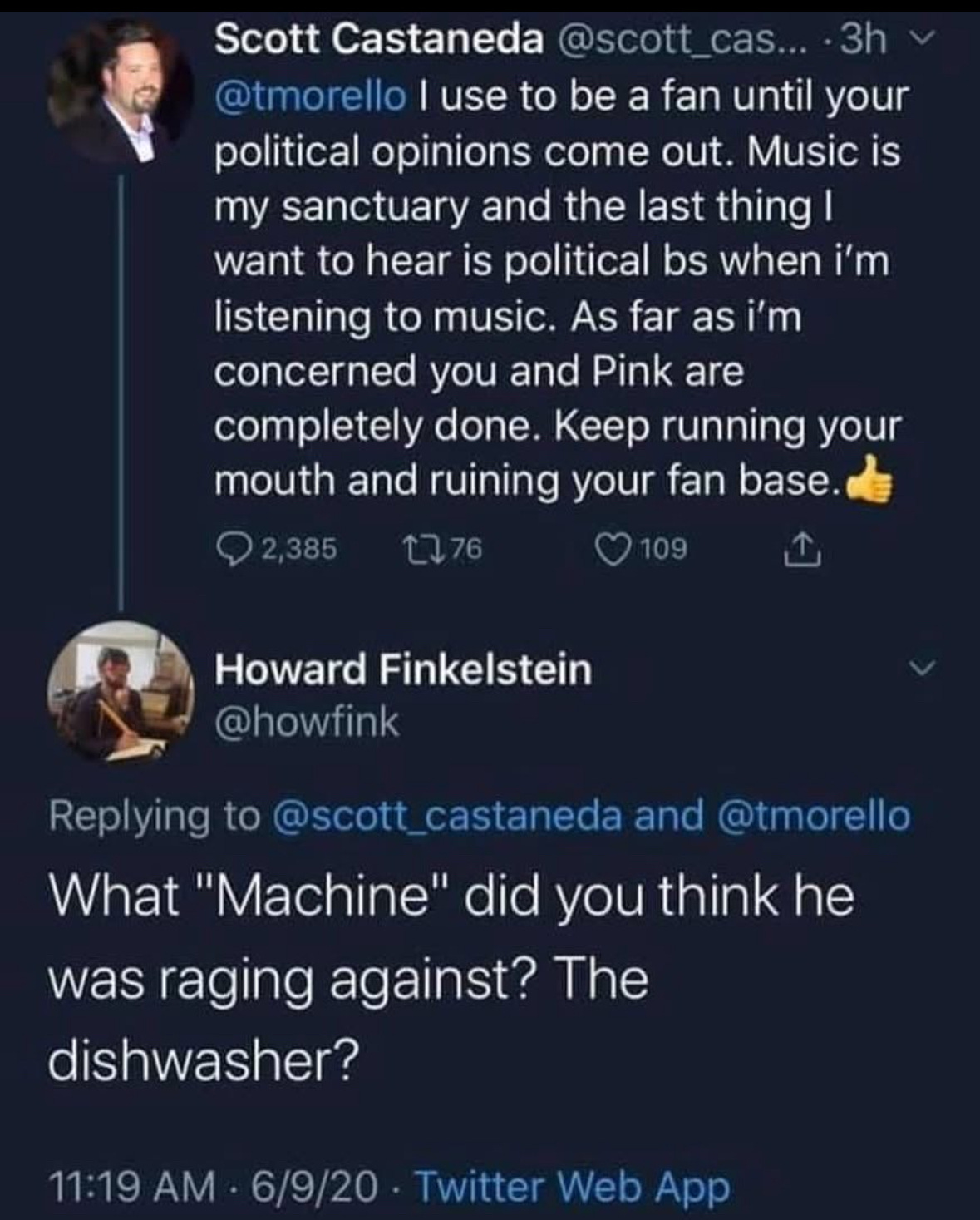*This post is best paired with:*
You’re an author. A storyteller. A creator of worlds.
But you also live in this world and, sometimes, you want to speak out—about Palestine, book bans, queer rights, the rise of fascism...take your pick1. But you write books for a living and, well, you need to make a living.
There’s a real fear that speaking out may lose you followers, get you review-bombed, blacklisted, or lose support from your publisher. And that’s a legitimate concern that shouldn’t be overlooked.
So how do you, as an author and a brand2, show up with clarity when the stakes feel impossibly high?
I wanted to take today’s post to do a bit of a break down on how to navigate political fire while still protecting your brand and your soul—coming at it as both a marketer and a human.
Know what you stand for before you have to
If you only react in the moment, you’ll always feel off-balance. Instead, build a value foundation within your brand ethos. What are non-negotiables for you? What do you want readers to associate with your name beyond your books?
Be proactive. Get clear. Write your line in the sand before the storm hits. You don’t need to give everyone online all the information about you and your beliefs, but if you are strongly pro (or anti) something in your day to day life - and especially if it shows up in your writing, whether overtly or not - make that known without fear.
Try this:
Add a tagline to your bio like: “Writing joy in resistance | Queer stories always welcome”
Pin a values post.
Curate a highlight reel: “What I Stand For.”
And remember: people don’t follow brands - they follow belief systems. Every one of your favorite brands has a distinct belief system that resonates with their consumers. Think: Nike’s “Just Do It” as more than a slogan, believing that people can overcome. Or TOMs believing in business for good. So…what’s YOUR belief system?
Use your voice strategically, not just emotionally
Yes, authenticity matters. Of course it does. But, often, intention can matter more.
Instead of rage-posting or resharing without context, slow down. You know how the corporate advice is always “don’t send an email when you’re angry. Draft it and revisit in the morning”? Well…this kind of applies here.
You are, after all, a business - and I can tell you from working for massive organizations during pivotal political movements that we always discussed our responses at length before even making an Instagram post.
So share with purpose. Provide sources (and don’t get sucked into misinformation, publicly). Say why this matters to you. Frame it with your own story or within your own worlds you create, if you can. People relate to the personal, not the performative.
Ask yourself:
How does this issue connect to my work or my core values?
What’s the one clear message I want my audience to leave with?
What action (if any) do I want people to take?
Try this in your newsletter or feed:
“This isn’t easy to write, but it’s important…”
“Here’s where I donated, here’s what I’m reading, here’s what I’m unlearning...”
Anticipate the fallout - the decide if you can live with it
You have every right to set your own boundaries about how much you’re willing to potentially lose or how much heat you’re willing to take. Not everyone can throw hot takes out there and just be ok with the pushback. And that’s fine, I give you permission to be sensitive if you are and to not want any kind of hate thrown your way.
So if you do decide to speak out, know you will likely lose followers. Some people may get angry. Many will tell you “just stick to books” (and, if they do, feel free to send ‘em my way because…no).
But here’s the thing about You, The Author™️. You’re not just building an audience. You’re building a community (remember? we’ve talked about this a lot!) And that community should reflect you. Ask yourself: would I rather lose a few readers who oppose my values - or betray my own voice trying to keep them?
Because marketing isn’t just visibility. It’s alignment. And misaligned readers won’t stick with you anyway. They’re flakey and likely not going to be your most vocal supporters
Try this:
Change your profile link to a cause.
Add a political book rec to your book recs on your feed or newsletter.
Post about resources that mean something to you - books or organizations that shaped your thinking
Let the work do the talking, too
Not every author needs to post political takes all day every day. You can thread your values into your stories, your characters, you acknowledgements, your newsletter. Quiet resistance is still resistance.
So, think about the books you’re recommending. The creators or authors you collaborate with. The causes you amplify regularly.
This is marketing with integrity. Brand storytelling isn’t just the story you sell, but it’s the world you build around it.
Try this:
Weekly “What I’m Paying Attention To” post
Story Q&A: “Want to learn more about [x]? Ask me anything.”
A link roundup in your newsletter
If you have a bigger platform, give it to a marginalized author for the day to reach more readers
Speak, even if your voice is shakey
Your books are part of the resistance. But your brand—your public-facing everything—is where readers decide whether to trust you with their time and money. Remember - you don’t have to be perfect.
You don’t need a PR-worthy statement.
You don’t need to be polished or scared you’re not fully educated on a topic or worried about repercussions in the long run.
At the end of the day, you just need to be honest. Compassionate. Human.
The best brands, the ones that have stood the test of time, have built this into their DNA. And there have been missteps and sometimes there have been setbacks, but they ALWAYS bounce back stronger than ever.
So say: “This is hard to write”
Say: “I’m afraid, but I believe this is important.”
Say: “If you disagree with this basic truth, my books may not be for you.”
Say: “I write and read to escape. But reading is and forever will be political”
At the end of the day, I have seen so many authors speak out over the last few months and yes…some have been impacted with followers leaving or readers claiming they will “never read your books again!” But they always say they rebound, and find a new set of readers and community that strengthens them. Remember, buying a book is transactional. Feeling emotionally invested in an author because you believe them, because they stand for what you stand for …that’s what builds loyalty.
Try this:
Create a “Reading for Justice” guide on your site.
Collaborate with authors of marginalized backgrounds on joint giveaways or panels or during your release tour.
Add a “what I stand for” slide to every preorder campaign.
You’re not here to be everyone’s favorite.
You’re here to write what only you can—and let your values shape the world that forms around it.
And the right readers? The right author groups? The right publishers?
They will be so happy if you show them who you really are.
And before I leave (and as a callback to the start of this newsletter) I was inspired to write this by a tweet I think and laugh about regularly:
Fight the power!
Xo,
Ada
How nice would it be to not have so many to pick from?!
I know you’re all artists and this is very unartistic to say, but every one of you is a business at the end of it all.








love this so much